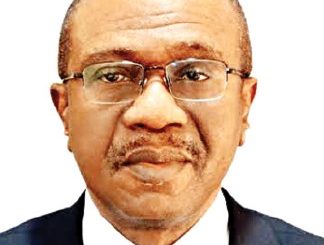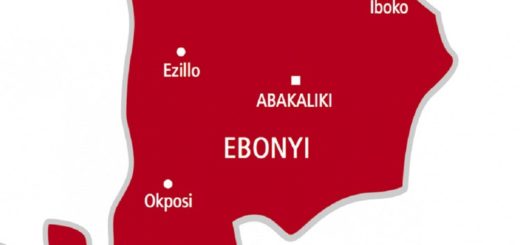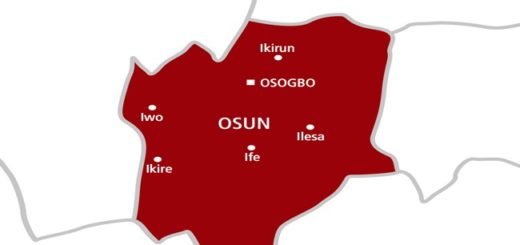Petroleum Minister, Former NCDMB Boss, Wabote Trade Words Over $500m Funds
 The Minister of State for Petroleum Resources, Heineken Lokpobiri, has reiterated claims that the Nigerian Content Development and Monitoring Board (NCDMB), under the leadership of the former executive secretary, Simbi Wabote, “wasted” over $500 million of the industry’s fund on equity investments, private establishments, and non-performing loans.
The Minister of State for Petroleum Resources, Heineken Lokpobiri, has reiterated claims that the Nigerian Content Development and Monitoring Board (NCDMB), under the leadership of the former executive secretary, Simbi Wabote, “wasted” over $500 million of the industry’s fund on equity investments, private establishments, and non-performing loans.
Lokpobiri was reacting to a recent media statement by Wabote that his office requested an increase in the NCDMB budget by N30bn for the minister’s office.
“It is a blatant lie from the pit of hell,” Lokpobiri said in a statement signed by his Senior Adviser Media and Communication Officer, Nneamaka Okafor.
Lokpobiri had last week said the government was reviewing the loans and projects estimated at $500 million executed by the NCDMB, accusing Wabote of wasting the funds on questionable projects and loans.
Lopkobiri, who spoke at a dinner held in Lagos last week by The Petroleum Club, alleged that Wabote paid $35 million for the Brass modular refinery in Bayelsa State without anything to show for it.
Also, he claimed that $20 million was paid for a fertiliser factory, which has yet to be seen. The minister alleged that about $350 million was taken to the Bank of Industry by the board to give loans to investors, stating that the fund was mismanaged with 90 percent non-performing loans.
The former NCDMB boss had said Lokpobiri’s “reckless statements” in the past months were not new to him.
He said, “My problem as the Executive Secretary started with Lokpobiri in December 2023 when he sent one of his undocumented aides within his ministry to my office in Yenagoa (Blackson) requesting me to increase the NCDMB budget by N30bn for the office of the Minister, and I said it had never been done before.”
Wabote claimed he told the oil minister he had served two ministers and none of them ever requested such a thing from the NCDMB, saying the board only made provision for the office of the Chairman of the Council, which covers his travel expenses.
“I said to him that the maximum the NCDMB budget has ever got to in the past is circa N80bn for all our activities, adding N30bn will be too much for his office and I was not going to do it,” he stated.
However, in a response, Lokpobiri noted that investigations are ongoing and that all funds belonging to the generality of Nigerians will be recovered.
“Let me add that these revelations are not new, they were first made during an investigative hearing of the House of Representatives Committee on Local Content. Again, the records are there and you are welcome to verify these facts.
“The Minister has never been part of any budgeting process of any parastatal under the ministry.
‘’Secondly, the minister has no aide called Blackson. All his aides were duly selected in line with extant laws and have documents to that effect.
“Thirdly, the said Atlantic Refinery was supposed to be built in Mr Wabote’s home town, he should show Nigerians where that refinery is.
‘’Fourthly, the Brass Fertilizer and Petrochemical company was also paid for.
‘’Finally, the Minister’s office is run with a budget superintended by the permanent secretary and so one will wonder, how the Minister will ask another entity to make provisions for the budget of his office. The Minister has an impeccable record from his time as minister of agriculture, and will continue to stand for the truth.
“The minister and indeed the Chairman of the Governing Council of the NCDMB, will not abdicate his responsibility to please anyone. He has a responsibility to ensure that, that which belongs to Nigerians is judiciously used for Nigerians
‘’I have had course to read Mr Wabote’s release, and everyone can see that he is still nursing the wounds of being replaced even after spending seven years at the Board. At best, this is a clear case of when you fight corruption, corruption will fight back,” the statement said.
Lokpobiri then challenged Wabote, to provide proof that he had requested for an increase on the NCDMB budget by N30 billion.













